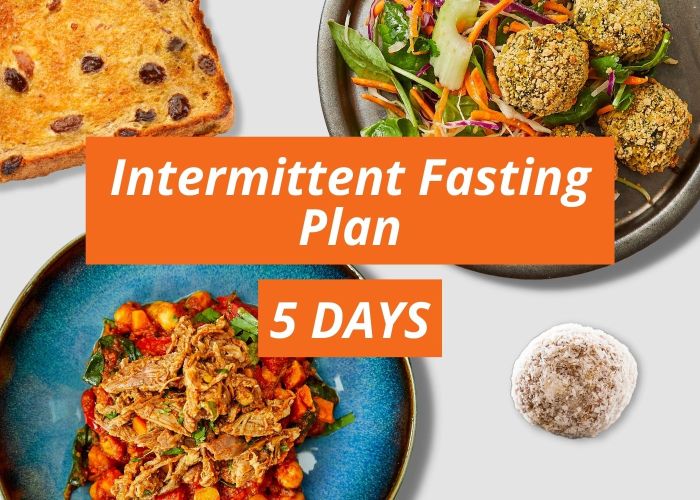How does intermittent fasting work where other diets don’t?

Fasting is an ancient tradition, used religiously and therapeutically. Greek physician, Hippocrates is known to have advocated fasting in the face of certain illnesses, more than 2,000 years ago. As a weight loss method, fasting is relatively new, having gained interest mainly in the last hundred years.
These days, there’s a lot of hype about intermittent fasting as a weight loss strategy and also for managing a range of health conditions such as diabetes, neurological disorders and cancer. Let’s explore what intermittent fasting is, why it’s effective for weight loss and how is it that it can work when a regular diet might not.
Intermittent fasting
Intermittent fasting is a style of eating where you switch between eating and not eating. It’s more about when you eat, rather than what you eat, although making healthy choices is always recommended for your overall good health! Some people who intermittently fast choose to skip breakfast or dinner, so that their overnight (sleeping) fast is extended for longer. Others may choose to eat just one meal a day; eat every other day; or skip eating a day a week. There are many acceptable forms of intermittent fasting, it’s just up to the individual to find the method that best suits them. When you skip a meal or skip a whole day’s worth of meals, you’re naturally eating less overall which is just one of the ways that intermittent fasting can contribute to weight loss.
As a weight loss method, intermittent fasting represents occasional non-eating, rather than continuous restrictive eating. Some dieters find this easier to manage as they don’t have to constantly forgo the food they like. Instead, they can enjoy eating a normal range of healthy foods and then choose certain days or times not to eat. In this way, it can work in very well with your lifestyle, can be changed from week to week and doesn’t require much planning or special food preparation.
Standard diet
By contrast, a standard diet for most people would involve creating a daily calorie deficit. That means, eating a reduced amount of calories every day in order that the amount of calories coming in is less than the amount of calories you use. Calories you use up includes those expended by the body for basic functions like breathing, digestion and maintaining body temperature (known as basal metabolic rate or BMR), as well as any calories used for physical activity undertaken.
Dieters often report feelings of deprivation or hunger on a standard diet as they have to constantly maintain a lower amount of calories than they’re used to. Some even take to punishing workouts at the gym to offset calorie intake and bring themselves into calorie deficit. The restrictive nature of these types of diets is not for everyone and resisting temptation on a daily basis can be tricky.
The challenges around standard diets
Like we’ve just said, continually saying no to foods you like to eat, can be hard. Many dieters feel that they can’t enjoy a latte or a full-fat yoghurt; butter is a no-no and so is that celebratory meal, colleague’s birthday cake or glass of wine. All those no’s can seriously test your willpower, wear you down and make you feel miserable. It’s no wonder that many dieters give in to cravings and binge eating, falling off and getting back on the wagon.
From a scientific perspective, operating at a lower than normal calorie level continually does something rather surprising to our bodies. The human body is very adaptable and when you give it less food for a while, then it eventually adapts to operate at that lower energy level by dropping your basal metabolic rate. Suddenly, the lower calorie level you’re consuming is no longer creating a calorie deficit but you’re in calorie equilibrium which is not good news for losing more weight. This could be your plateau.
Unfortunately, the statistics around weight regain for dieters are not good. Studies suggest that whilst most dieters do succeed in losing 5-10% of their body weight within 6 months, around two thirds will put it all back on over the next few year! Further to that, the cycle of gaining and losing weight that’s commonly referred to as yo-yo dieting is actually very bad for your health. It’s linked to heart disease, stroke, diabetes and altered immune function.
Why intermittent fasting can be effective for weight loss
After a meal, the body initially draws upon the energy it has available in your bloodstream and then moves onto other energy sources. Glycogen is a form of carbohydrate stored in the liver and muscles which the body can quickly convert to energy. Once that is all gone, your body will hit your fat stores. Converting fat to energy is a more laborious and less efficient process so whilst it’s great for dieters, the body sees it as a last resort after other forms of energy are used. As soon as you eat your next meal or snack, the body reverts to using the easy-to-obtain energy that’s hitting your bloodstream, liver and muscles. When we fast, we are prolonging the amount of time our body is forced to burn fat for energy, which is why it works for weight loss.
If you are eating three meals a day as well as snacks, then your body is operating on the calories you’re consuming rather than burning your stored fat. Exercise is a great way of accelerating your results as it will help to use up your glycogen more quickly and get you into fat burning mode.
How can intermittent fasting work when other diets fail?
There’s a key reason why intermittent fasting can succeed where other diets have failed and it all comes down to metabolism. You see, when you restrict calories you lose weight – the simple in/out equation. But, if you continue to follow the same calorie restriction for more than a few days, your body adapts to the lower calories by reducing your basal metabolic rate. This means your body has set itself a new, lower benchmark for how many calories it needs to carry out basic functions.
Studies have shown, however, that you can fast for up to four days at a time without lowering your BMR. Luckily, there’s no need to be so drastic – you can intermittently fast, switching back and forth between eating and fasting, and your body maintains the same BMR. Every time you decide to skip breakfast or dinner, you’ll be pushing your body into fat burning mode, and over time this can be very effective for losing body fat and losing weight. The other benefit of this energy equation is that intermittent fasting allows you to maintain muscle muss. As muscle burns more calories than fat, it's vital to maintain it.
Top 5 benefits of intermittent fasting
- Safe. Fasting has been tried and tested over thousands of years.
- Easy to adopt and flexible. Skip breakfast or dinner or don’t eat one day at all. By mixing it up, you’re actually confusing your body which is a good thing.
- Health benefits. Improve your blood sugar levels, digestion, heart health and more.
- Lose fat, retain muscle. Lose weight while maintaining your metabolism and muscle. This also means there is a lower chance of weight regain.
- Less hunger. When you cycle between periods of eating and fasting your hunger hormone, ghrelin, is not impacted. By contrast, in standard calorie restricting diets, ghrelin increases.
Ultimately, if weight loss is your goal, you need to find what works for you. Standard diets involving a lower calorie intake can work but come with a range of challenges, namely hunger, a sense of deprivation and yo-yo style weight regain. Many people find that intermittent fasting enables them to lose weight, keep it off and improve their health all at the same time, thanks to maintaining metabolic rate and muscle mass. Weight loss success leads many people to continue with intermittent fasting as a permanent lifestyle choice, long after the excess weight is gone.
Review the Dietlicious meal plans that involve INTERMITTENT FASTING here.










